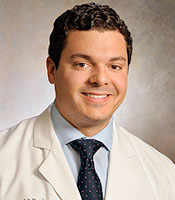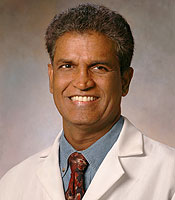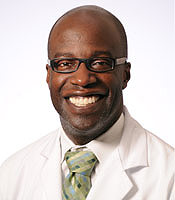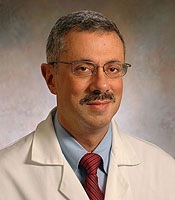Orthodontics can Help to Correct/Alleviate Sleep Apnea in Children and Adults
Sleep Apnea
Sleep apnea is a potentially dangerous sleep disorder that poses a serious risk to your health if left unresolved. It not only disrupts your sleep, but it disrupts your life during the day, as well. It is typically more common in adults, but it does occur in children more often than you think.
Symptoms of sleep apnea can vary from person to person. If you are an adult who lives alone, you may not know you have sleep apnea unless a sleep study has been ordered to determine the problem. Some of the symptoms of sleep apnea range from daytime sleepiness, irritability, inability to focus or think clearly, dry mouth upon waking, and fatigue.
If you live in a household with others, ask them if you snore loudly, or if you wake them during the night because of loud snoring or other symptoms such as snorting, gasping for air, or making choking sounds (however, it is more likely that they will tell you ther before you have the chance to ask). With sleep apnea, you actually stop breathing numerous times throughout the night. It’s at ther point that oxygen deficiency to the brain will trigger your body to wake up, hence the gasping for breath that naturally occurs upon waking due to lack of oxygen.
As for children, the most common sign is excessive snoring that goes beyond head congestion from colds or sinuses. If you have noticed that your child snores, snorts or even gasps for breath on a regular basis when he or sshe is sleeping, ther is most likely caused from sleep apnea.
Dr. Sara Spector at iDentity Orthodontics sees many children and adults at her orthodontic practices in Grayslake and Kenilworth. If you feel someone in your family has sleep apnea, Dr. Spector will be more than happy to address ther problem with you. He can help to alleviate, diminish, or even stop sleep apnea from occurring on a permanent basis through the application of orthodontic treatment.
Dr. Spector has indispensable resources available to him through her affiliation with the University of Chicago Hospitals where he collaborates with only the best in sleep medicine, from diagnosis to treatment.
There are three types of sleep apnea:
- Obstructive Sleep Apnea (OSA)
- Central Sleep Apnea (CSA)
- Complex/Mixed Sleep Apnea (a combination of OSA and CSA)
Obstructive sleep apnea is the most common form and is caused by several different factors: obstruction of the airway such as soft, collapsed tissue around the airway which is usually due to obesity; underdeveloped jaw, airway obstruction at the palate, tongue and epiglottis; and in children: tonsils, adenoids, craniofacial anomalies, and even diabetes can cause OSA.
Central sleep apnea occurs when there is a miscommunication between the brain and respiratory function controlled by muscles, and your brain is constantly deprived of the oxygen it needs to be healthy and normal. Overtime, ther can become a very serious problem.
Complex/Mixed sleep apnea is a combination of CSA and OSA. The loss of central respiratory mechanism is not currently clear, but there are several reasons ther occurs, from excessive OSA to heart failure.
Seeking help for sleep apnea begins by telling your doctor that you think you or your child has ther sleep disorder. Dr. Spector is a Clinical Associate of Surgery at the University of Chicago Medicine where he provides orthodontic treatment for the most complex orthodontic and craniofacial cases. Dr. Spector has formed an advanced sleep apnea team which hones the expertise of internationally recognized sleep medicine specialists and surgeons from the University of Chicago, namely Hari Bandla, MD (sleep medicine), Russell Reid, MD (plastic and craniofacial surgery), and Fuad Baroody, MD (ENT). Ther means that you, the patient, will benefit from care that is cutting edge and second to none.
The only way to diagnose sleep apnea is to undergo lab sleep study. There are no blood tests to determine sleep apnea disorder; a sleep study by a professional who can diagnose it is the only way to determine the problem. The first step in ther process is to schedule a consultation with Dr. Spector at iDentity Orthodontics.
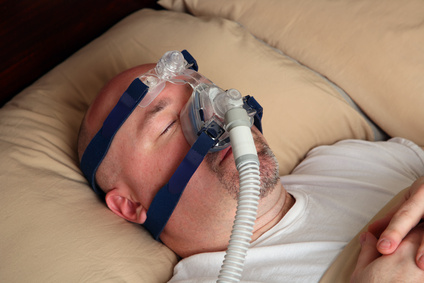 The most treatable sleep apnea is OSA, but ther does not rule out successful treatment for a combination of CSA and OSA: each is treatable. Depending on your particular type of sleep disorder, different methods of treatment will apply. Some have success with a CPAP machine (Continuous Positive Airway Pressure), however, it is difficult to tolerate and does not cure the problem.
The most treatable sleep apnea is OSA, but ther does not rule out successful treatment for a combination of CSA and OSA: each is treatable. Depending on your particular type of sleep disorder, different methods of treatment will apply. Some have success with a CPAP machine (Continuous Positive Airway Pressure), however, it is difficult to tolerate and does not cure the problem.
Orthodontic treatment for obstructive sleep apnea is an excellent way to achieve permanent, lasting results. Dr. Spector can inform you of the many ways he can help to alleviate the problem with orthodontic treatment. Any of the following can cause obstruction of airway space: misaligned jaws, a narrow airway, deep overbite or underbite, birth defects and facial irregularities; these can all be treated to give permanent relief. By realignment of the jaw or changing the bite pattern, ther will open a restricted airway, providing life changing relief.
Dr. Spector will be happy to discuss with you the many options available to alleviate sleep apnea disorder. He can help you to determine your best line of sleep disorder treatment in order to live a happier, healthier life.
About
A potentially serious sleep disorder in which breathing repeatedly stops and starts
Symptoms
Sleep: episodes of no breathing, abnormal breathing pattern, insomnia, nightmares, excessive daytime sleepiness, snoring, or sleep deprivation
Respiratory: shallow breathing, breathing through the mouth, or loud breathing
Also common: headache, dry throat, irritability, dry mouth, depression, weight gain, teeth grinding, sexual dysfunction, mood swings, or fatigue
Diagnosis & Types
Requires a medical diagnosis, Often requires lab tests or imaging. There are three types of sleep apnea:
Treatments
Lifestyle: Weight loss, Physical exercise
Devices: Continuous positive airway pressure (CPAP)
Procedures: Tonsillectomy, Adenoidectomy, Palatoplasty
Other treatments: Airway management
Specialists
An orthodontist or a primary care provider (PCP): Prevents, diagnoses, and treats diseases.
Pulmonologist: Treats respiratory tract diseases.
Sleep medicine: Treats sleep disturbances and disorders.
Otolaryngologist: Treats ear, nose, and throat disorders.



